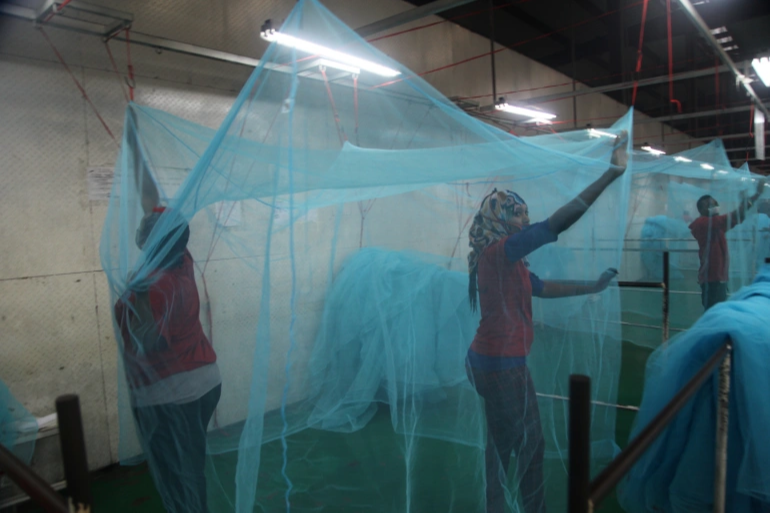
Mosquito nets in a Tanzania factory. Bed nets can protect people from being bitten by the mosquitoes that spread malaria [File: Katy Migiro/Reuters]
Geneva, December 9 (RHC)-- The coronavirus pandemic has interrupted efforts to control malaria, resulting in 63,000 additional deaths and 13 million more infections globally over two years, according to a report from the World Health Organization (WHO).
Cases of the parasitic disease went up in 2020 and continued to climb in 2021, though at a slower pace, the United Nations health agency said in its World Malaria Report 2022, released on Thursday.
About 95 percent of the world’s malaria infections and deaths last year were in Africa. And just four countries – Nigeria, the Democratic Republic of the Congo, Niger and Tanzania – accounted for more than half of all malaria deaths. “We were off track before the pandemic and the pandemic has now made things worse,” said Abdisalan Noor, a senior official in WHO’s malaria department.
Although estimated deaths from malaria globally declined to 619,000 in 2021 from 625,000 in 2020 – due in part to healthcare services stabilising after pandemic-led disruptions – the number of deaths has remained higher than the estimated 568,000 in 2019, the report said.
Meanwhile, the number of malaria infections continued to rise, albeit at a slower pace, to an estimated 247 million in 2021. That compares with 245 million cases in 2020 and 232 million in 2019.
The WHO highlighted that lower funding due to the pandemic and rising costs have increased pressure on national malaria programmes. Funding in 2021 came in at nearly $3.5 billion, the report said. This marked an increase from the two previous years but fell far short of the $7.3 billion estimated to be required globally to stay on track to defeat the disease.
Looking forward, the WHO noted a number of promising developments, including the first malaria vaccine, RTS,S which has already been given to more than a million children and will become widely available next year.
WHO’s Noor said it was still too early to say how many lives the vaccine would save. But “we do expect considerable impact on severe disease and deaths,” he told reporters. Still, the vaccine is only about 30-percent effective and requires four doses.
The WHO also stressed that huge challenges remained, including insufficient numbers of bed nets – which can protect people from being bitten by the mosquitoes that spread malaria – and the greater spread of parasite-bearing mosquitoes.
Officials also raised concerns about a new invasive mosquito species that thrives in cities, is resistant to many pesticides and could undo years of progress against malaria. The invasive species has not yet significantly contributed to the continent’s overall malaria burden, but the insects are likely responsible for a recent spike in parts of the horn of Africa, Noor said.

